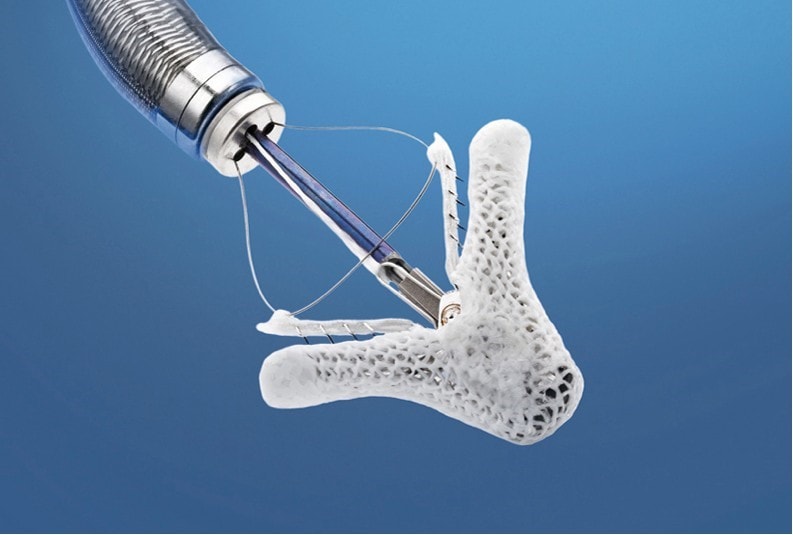Mitraclip: A Minimally Invasive Procedure to Reduce Mitral Regurgitation
Written by Bryan Heart Cardiologist, John Steuter, MD
Mitral regurgitation develops when the heart's mitral valve leaflets fail to close tightly causing blood to leak back through into the left atrium. As a result, the heart must then work harder to push the extra blood through the heart.
This can lead to symptoms of:
- Weakness
- Fatigue
- Shortness of breath
- And ultimately to heart failure
A Common Heart Valve Problem
Mitral regurgitation is the most common type of heart valve insufficiency in the United States. Approximately four million people have significant mitral valve insufficiency, with an annual incidence of 250,000. Approximately 50,000 of these patients undergo surgery each year in the United States.
There are two main classes of mitral regurgitation:
- Degenerative Mitral Regurgitation
Degenerative mitral regurgitation is result of damage to the mitral valve leaflets itself.
- Functional Mitral Regurgitation
Functional mitral regurgitation is the result of heart attacks or heart failure.

Mitral Regurgitation Treatment
Treatment of mitral regurgitation has traditionally been either medical or surgical. In 2013 the FDA approved a new catheter based technology for treatment of degenerative mitral regurgitation called Mitraclip. Designed for patients at too high of risk for traditional surgery, this technology offers another option.
Mitraclip
Mitraclip is a minimally invasive procedure that has been shown to reduce the severity of mitral regurgitation, reduce heart failure symptoms and improve quality of life.

How Mitraclip Works
Mitraclip at Bryan Heart
At Bryan Heart, we are proud to have a structural heart team that offers this treatment to patients. For more information about this technology, please contact Bryan Heart at 402-483-3333.

